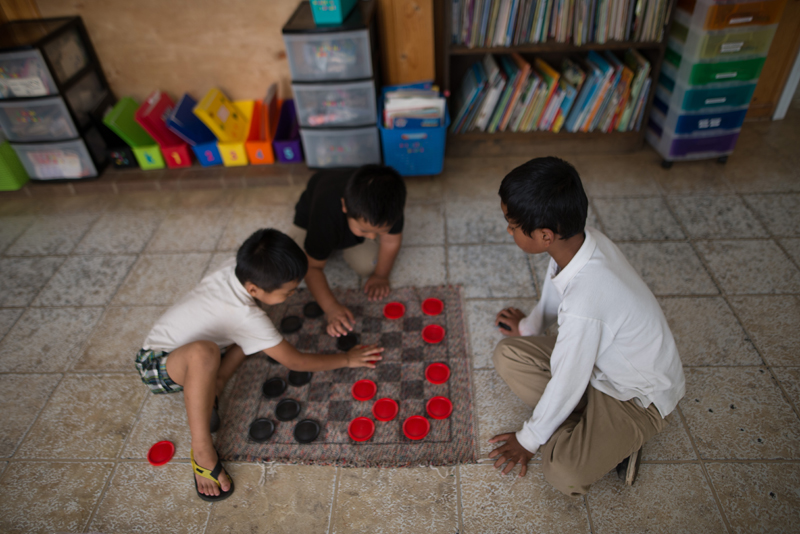
Photo by Ali Sardar
.
More and more research is linking transiency to student achievement.
Transiency refers to students leaving a school in the middle of the year — often because of a family move.
High transiency, also referred to as churn, can impact a whole school negatively, according to the report “Student Mobility in Georgia: 2013-2014 Update.” Schools in high-poverty areas can see half their students move within a school year, according to a 2010 report from the National Academy of Sciences.
People in poverty “just have more instability in their lives,” said Russell Rumberger, professor emeritus in the school of education at the University of California at Santa Barbara. They’re more likely to lose a job, for example, or have to move to find a place that is cheaper to rent, he said.
In schools with high transiency, students were a year behind by fifth grade compared with students in schools with low transiency, according to University of Chicago researcher David Kerbow, whose study included 13,000 Chicago students.
Moving is disruptive for children and schools, Rumberger said. The classroom atmosphere is impacted and teachers may have to spend extra time with new students, he said.
Anything that provides support services can help, he said.
The goal of Atlanta nonprofit Star-C is to provide services at low-income housing complexes. Top on the list is to offer affordable rent that doesn’t fluctuate, said Marjy Stagmeier, founder of Star-C. This reduces the likelihood that families are forced to move because of financial problems.
Next in importance, in her opinion, is a free after-school program at the apartment complex. “The children are getting supervision after they leave school and not just going home to an empty apartment,” she said.
After-school programs offer a host of protective factors, according to research. They are associated with better performance in school, improved homework completion and greater engagement in learning. They are also linked to lower dropout rates, higher educational aspiration, improved social and communication skills and greater self-confidence and initiative.
Children in poverty face all sorts of impediments to learning, according to Michael A. Rebell, writing in the North Carolina Law Review in 2007.
In poverty the focus is on survival. The most important things are safety, food and shelter. Access to basic health care suffers. Family life suffers, and community connections are weakened, Rebell and Jessica R. Wolff wrote in their 2008 book, “Moving Every Child Ahead: From NCLB Hype to Meaningful Educational Opportunity.”
The combination of services Star-C is offering are important to families in poverty.
“That’s absolutely got to be beneficial,” Rumberger said.





























